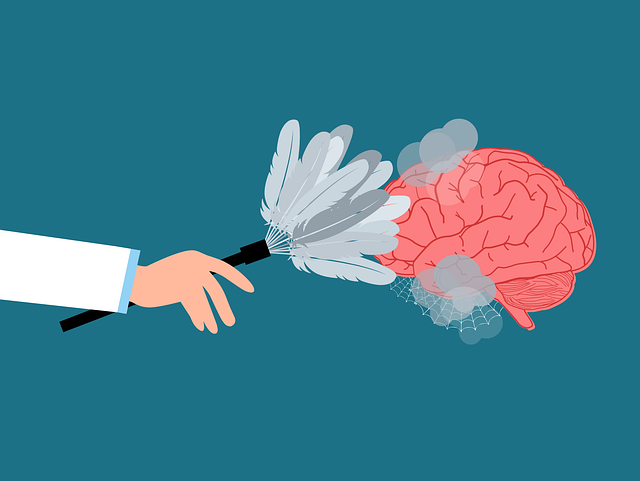Englewood Mental Health Evaluations Therapy employs a multi-faceted approach to comprehensive psychological assessment. Combining quantitative methods like Depression Anxiety Stress Scales (DASS) and qualitative interviews, therapists gain deep insights into clients' emotional well-being, thought patterns, and interpersonal dynamics. This data guides tailored therapeutic interventions and tracks program effectiveness through objective measurements and participant satisfaction surveys. Qualitative evaluations, including in-depth interviews and observations, assess the impact of programs fostering resilience and social integration, informing policy analysis and advocacy. Continuous improvement is driven by active client feedback mechanisms, ensuring treatment plans meet individual needs and enhancing overall therapy service efficacy.
“Unveiling the power of evaluation in mental wellness programs, this article explores effective methods to measure success. From the foundational approach of Englewood Mental Health Evaluations, which lays a crucial path for tailored therapy, to advanced quantitative and qualitative techniques, we delve into strategies enhancing patient outcomes.
Quantitative assessments provide data-driven insights while qualitative methods reveal deeper, personal narratives. By integrating feedback analysis, mental health services can continuously improve, ensuring engaging and impactful therapeutic journeys.”
- Understanding Englewood Mental Health Evaluations: A Foundation for Effective Therapy
- Quantitative Assessment Techniques in Mental Wellness Programs
- Qualitative Evaluation Methods: Uncovering Deeper Insights
- Implementing and Analyzing Feedback for Continuous Improvement in Therapy Services
Understanding Englewood Mental Health Evaluations: A Foundation for Effective Therapy

Englewood Mental Health Evaluations serve as a cornerstone for effective therapy, providing a comprehensive understanding of an individual’s mental wellness landscape. These evaluations go beyond surface-level symptoms to uncover underlying factors contributing to psychological distress. By meticulously assessing various aspects such as emotional well-being, thought patterns, and interpersonal dynamics, therapists gain invaluable insights into each client’s unique needs. This foundation is pivotal for tailoring therapeutic interventions, ensuring that treatments are not only targeted but also compassionate and tailored to foster growth.
The process involves a meticulous blend of quantitative assessments, qualitative interviews, and sometimes, the integration of Compassion Cultivation Practices and Conflict Resolution Techniques from Mental Wellness Coaching Programs Development. These methods collectively paint a detailed picture, enabling therapists to make informed decisions about the most suitable therapy types, duration, and goals for each client. Ultimately, a thorough Englewood Mental Health Evaluation is transformative, empowering both therapist and client to navigate the path to improved mental wellness together.
Quantitative Assessment Techniques in Mental Wellness Programs

Quantitative assessment techniques play a pivotal role in evaluating the effectiveness of mental wellness programs, such as those offered at Englewood Mental Health Evaluations & Therapy. These methods involve the use of standardized tools and measures to gather data on various aspects of mental health, including symptoms, function, and treatment outcomes. By employing surveys, questionnaires, and clinical assessments, professionals can objectively track progress over time, compare results across different groups, and make informed decisions about program improvements.
For instance, metrics like the Depression Anxiety Stress Scales (DASS) or the Beck Depression Inventory (BDI) are widely utilized to quantify levels of depression and anxiety. Additionally, communication strategies within these programs can be assessed through participant satisfaction surveys and feedback forms, helping to identify areas for enhancement and fostering a more supportive environment. Mental illness stigma reduction efforts are also evaluated quantitatively by measuring attitudes and beliefs before and after intervention, thereby demonstrating the program’s impact on breaking down societal barriers.
Qualitative Evaluation Methods: Uncovering Deeper Insights

Englewood Mental Health Evaluations Therapy often employs qualitative evaluation methods to gain deeper insights into participants’ experiences and perceptions. These methods include in-depth interviews, focus groups, and observations, which allow for rich data collection that goes beyond quantitative measures. By engaging with individuals directly, evaluators can uncover nuanced understandings of the program’s impact, identify areas for improvement, and explore the complex interplay between mental health services and social contexts.
Qualitative approaches are particularly valuable in assessing programs aimed at fostering resilience and enhancing social integration. For instance, evaluating a Social Skills Training program or designing Public Awareness Campaigns Development can benefit from these methods to capture the subtleties of participants’ interactions, their perceptions of support systems, and the broader societal influences on mental wellness. This holistic perspective is crucial for informing Mental Health Policy Analysis and Advocacy efforts, ensuring that interventions are tailored to meet the diverse needs of those seeking mental health services.
Implementing and Analyzing Feedback for Continuous Improvement in Therapy Services

Implementing feedback mechanisms is a pivotal step in enhancing therapy services within Englewood Mental Health Evaluations. This process involves actively soliciting input from clients to gauge their therapeutic journey and identify areas for improvement. By encouraging open communication, therapists can gain valuable insights into what works well and where adjustments are needed. Client feedback not only helps tailor treatments but also fosters a collaborative environment, ensuring the therapy aligns with individual needs.
Regular analysis of this feedback is essential for continuous quality improvement. Therapists should review client comments and ratings to pinpoint trends, common themes, or specific issues related to various aspects of treatment, such as self-esteem improvement, emotional intelligence development, and confidence-boosting strategies. This data-driven approach allows professionals at Englewood Mental Health Evaluations to make informed decisions, adapt their practices, and ultimately enhance the overall effectiveness of therapy services.
Mental wellness program evaluations are a multifaceted process, encompassing both quantitative and qualitative methods. By employing Englewood Mental Health Evaluations as a foundation, therapists can effectively tailor therapy services. Quantitative techniques provide data-driven insights into treatment outcomes, while qualitative methods offer deeper understanding of clients’ experiences. Integrating these approaches allows for continuous improvement, ensuring that therapy remains responsive to individual needs and maximizes positive outcomes.











